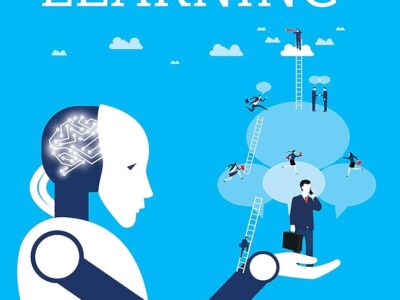Requirements
- No prior knowledge of machine learning is required. However, basic programming skills in Python and familiarity with linear algebra and statistics concepts are recommended.
Welcome to the Introduction to Machine Learning course, designed for beginners eager to explore the fascinating world of machine learning and its practical applications. In this course, you’ll embark on a comprehensive journey through the fundamental concepts, techniques, and algorithms of machine learning, culminating in a hands-on live project where you’ll apply your newfound knowledge to solve a real-world problem.
Here’s what you can expect to learn:
- Introduction to Machine Learning: Get introduced to the basic concepts and principles of machine learning, including supervised learning, unsupervised learning, and reinforcement learning. Understand the role of machine learning in artificial intelligence and its applications across various industries.
- Data Preprocessing and Exploration: Learn how to preprocess and explore datasets to prepare them for machine learning tasks. Explore techniques for data cleaning, handling missing values, feature scaling, and visualization to gain insights into your data.
- Supervised Learning Algorithms: Dive into supervised learning algorithms, including linear regression, logistic regression, decision trees, random forests, and support vector machines (SVM). Understand how these algorithms work and when to use each one based on the nature of your data and the problem you’re trying to solve.
- Unsupervised Learning Algorithms: Explore unsupervised learning algorithms such as K-means clustering, hierarchical clustering, and principal component analysis (PCA). Learn how to identify patterns and structures in unlabeled data and extract meaningful insights from them.
- Evaluation Metrics and Model Selection: Understand how to evaluate the performance of machine learning models using various evaluation metrics such as accuracy, precision, recall, F1-score, and ROC curves. Learn techniques for model selection, including cross-validation and hyperparameter tuning.
- Introduction to Neural Networks: Get introduced to artificial neural networks (ANNs), the building blocks of deep learning. Learn about the architecture of neural networks, including input layer, hidden layers, activation functions, and output layer.
- Live Project: Apply your knowledge and skills to a hands-on live project, where you’ll work on a real-world machine learning problem from start to finish. Collaborate with your peers and instructor to analyze data, build and train machine learning models, and evaluate their performance. By the end of the project, you’ll have developed a working machine learning solution that addresses a specific problem statement.
- Project Presentation and Feedback: Present your live project to the class and receive constructive feedback from your peers and instructor. Gain valuable insights into your project’s strengths and areas for improvement, and learn from others’ experiences.
- Practical Tips and Best Practices: Throughout the course, you’ll receive practical tips, best practices, and real-world examples to help you navigate the challenges of machine learning projects effectively. Learn how to approach data-driven problems, iterate on your models, and communicate your findings clearly and persuasively.
By the end of this course, you’ll have gained a solid understanding of the fundamental concepts and techniques of machine learning and acquired practical experience through a live project. Whether you’re looking to kickstart a career in data science, enhance your skills as a software developer, or simply explore the exciting field of machine learning, this course will provide you with the foundation you need to succeed.
Course Features
- Lectures 0
- Quizzes 0
- Duration 24 weeks
- Skill level All levels
- Language English
- Students 0
- Assessments Yes






